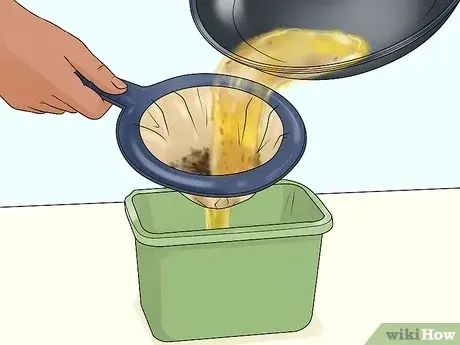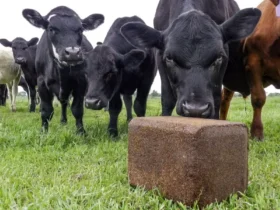Foaming oil can be a frustrating and unexpected occurrence in the kitchen. Whether you’re frying, sautéing, or even just heating up oil for a recipe, seeing it foam can leave you puzzled and concerned.
But why does this happen? Is it safe to continue cooking with foaming oil?
Science behind foaming cooking oil
To truly understand why cooking oil foams, we need to delve into the science behind it. Foaming occurs when there is a presence of impurities or moisture in the oil. These impurities can come from a variety of sources like leftover food particles, water, or even air trapped in the oil.
When the oil is heated, the impurities and moisture undergo a chemical reaction, causing bubbles to form. These bubbles then rise to the surface, resulting in foam.
Cooking with foaming oil may not necessarily be harmful to your health, but it can affect the taste and quality of your dishes. The foam can also create splatters, leading to a messy kitchen and potential burns.
Common causes
As mentioned earlier, the presence of impurities and moisture in cooking oil is the main culprit behind foaming. Let’s dive deeper into some common causes:
a. Water:
If you wash vegetables or meat before cooking and then use the same oil, the residual water droplets can cause the oil to foam. Make sure to pat dry your ingredients thoroughly before adding them to hot oil.
b. Leftover food particles:
When you fry foods like breaded chicken or battered vegetables, tiny pieces can break off and mix with the oil. These particles contribute to foaming. Always strain and filter your oil after frying to remove any solid remnants.
c. Air:
Some oils absorb air during storage, which can lead to foaming. To prevent this, ensure your oil is properly sealed and stored in a cool, dark place.
Impact of foaming cooking oil
Foaming in cooking oil not only affects the aesthetics of your dishes but also has a significant impact on their taste and overall cooking performance. When your oil foams excessively, it can result in uneven cooking and browning.
Moreover, foaming can alter the taste of your dishes. The air trapped in the foam can introduce a bitter or off-putting flavor to your food. Imagine biting into a deliciously cooked piece of chicken, only to be met with an unpleasant aftertaste caused by foamy oil.
To ensure your cooking is up to par and your dishes taste as delicious as possible, it’s essential to address the foaming issue.
Tips and tricks
Now that we’ve discussed the negative effects of foaming in cooking oil, it’s time to explore some effective ways to prevent and reduce this issue. Here are a few tips and tricks that can help you maintain a smooth cooking experience and ensure your dishes turn out perfect every time:
1. Use the right type of oil:
Different oils have different smoke points and levels of stability. Opt for oils with higher smoke points, such as canola or peanut oil, as they are less likely to foam at high temperatures.
2. Maintain the right temperature:
Excessive heat can cause oil to foam. Monitor and control the temperature of your cooking oil to prevent it from reaching its smoking point.
3. Avoid introducing moisture:
Moisture is one of the main culprits behind oil foaming. Make sure your food is dry before adding it to the hot oil to reduce the chances of foaming.
4. Avoid overcrowding the pan:
When you overcrowd the pan with too much food, it can cause the oil to bubble and foam. Cook in batches if needed to maintain a manageable amount of food in the pan.
5. Properly clean and store your oil:
Leftover food particles or debris in your oil can cause it to foam. After each use, strain and store your oil in a clean and dry container to ensure its quality.
Concerned about foaming in cooking oil?
Foaming in cooking oil can be a common occurrence and often not a cause for concern. However, there are instances when foaming can indicate a more significant problem. It’s important to understand the difference between normal foaming and potentially harmful foaming.
Normal foaming typically occurs when cooking oil is heated, and air is trapped within the oil. This type of foaming is generally harmless and does not affect the taste or quality of your dishes
On the other hand, persistent and excessive foaming, accompanied by a foul odor or discoloration, could be a sign of oil breakdown or contamination. This may occur due to factors such as overheating, exposure to air, or the presence of water or food particles in the oil.
Troubleshoot and fix foaming issues
If you are experiencing persistent foaming in your cooking oil, there are several steps you can take to troubleshoot and fix the issue:
1. Check the temperature:
High heat can cause cooking oil to foam excessively. Make sure you are using the correct temperature for your cooking needs. If the oil is overheating, reduce the heat to a more suitable level.
2. Remove any moisture:
Moisture can cause oil to foam. Ensure that your ingredients are dry before adding them to the oil. Additionally, make sure there is no water present in the pan or utensils used for cooking.
3. Avoid overcrowding:
Overcrowding the pan with ingredients can cause the oil to foam. Cook in smaller batches to give the oil and ingredients more space.
4. Clean the oil regularly:
Contaminants such as food particles or previous cooking residue can contribute to foaming. Regularly strain and clean your oil to remove any impurities.
If you have tried troubleshooting the issue and the foaming continues to persist, it may be best to discard the oil and start fresh. Proper maintenance and care of your cooking oil can help prevent foaming issues while ensuring optimal cooking results.
Conclusion
Addressing the issue of foaming in your cooking oil can help ensure that your culinary creations turn out perfectly. By following the steps provided in this blog post, such as regulating the temperature, removing moisture, avoiding overcrowding, and cleaning the oil regularly, you can prevent excess foam from ruining your dishes.
However, if the problem persists despite troubleshooting, it is recommended to discard the oil and start fresh. Remember that proper maintenance and care of your cooking oil is essential not only for preventing foaming but also for optimizing your cooking results.










Hello!! My name is Jeanine
I love to eat, travel, and eat some more! I am married to the man of my dreams and have a beautiful little girl whose smiles can brighten anyone’s day!